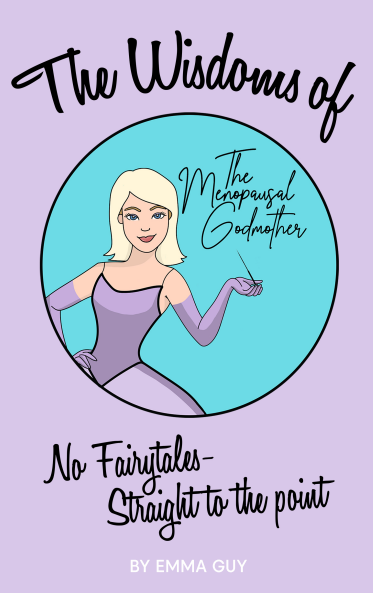If menopause was a journey it would start at an unmarked departure point, include some very odd diversions, maybe go off the rails and arrive anytime within the next ten years, that’s the reality. But here we try to give you a roadmap to help you navigate this sometimes rocky road.
The menopause starts exactly a year after your last period, so even if over the past 12 months you’ve experienced menstruation, even if it’s just for a day or two you’re actually not there yet.
Where you are is at the stage of perimenopause, which is the run up to the big event. This is the time of declining oestrogen levels, fluctuating hormones and mood swings. This phase is all about signalling that the menopause process is starting but it can still be years before you experience your last menstrual period. And you won’t know about that until a year has passed. Are you still with me?
If you are Ms average (who is?) then the age for that magical day when you’ve been without a period for a full 12 months, is 51, but the truth is some women can be younger and others older. It’s not unheard of for women to have a baby in their early 50s, so if you don’t fancy nappies and sleepless nights use contraception!
Women can also go through a premature menopause, which is when periods stop before the age of 45. This can be caused by treatments, or illness but for some women it just occurs naturally.
Early or premature menopause can happen for two reasons: follicle depletion or follicle dysfunction.
In this instance eggs don’t mature or get released, causing a woman’s period to stop. Obviously, when you are older you expect this to happen but if they occur early, your doctor needs to check for an underlying cause.
How long does the menopause last?
This totally depends upon the individual. For some women the menopause hardly seems to register as they career through life, while others are besieged by symptoms over years. The perimenopause can start many months before periods stop altogether but if you want some kind of yardstick then Age UK says that the menopause ‘usually’ continues for about four years following your last period.
What’s the difference between early menopause and premature menopause?
Thought they were the same thing? Then you’d be mistaken. Early menopause is menopause that begins between the ages of 40 and 45, while premature menopause makes its debut before age 40. Many doctors now refer to premature menopause as ‘premature ovarian failure’ or ‘primary ovarian insufficiency’ with the aim of reducing the ‘stigma’ of the word menopause but to me they somehow manage to make it sound more clinical and at the same time more insulting. Better to claim the word menopause and own it.
What causes early menopause?
Periods that stop early for no obvious external cause such as medical treatment, cause do so because the woman’s ovaries are not producing certain hormones, including oestrogen.
The cause of premature ovarian failure is often unknown, but in some women it may be caused by:
● Chromosome abnormalities – such as in women with the genetic disorder, Turner syndrome.
● An autoimmune disease – where the immune system starts attacking body tissues.
● Infections such as tuberculosis, malaria and mumps but this is very rare
● Premature ovarian failure can sometimes be an inherited thing. This might be the case if any of your relatives went through the menopause at a very young age (20s or early 30s).
● Cancer treatments
Radiotherapy and chemotherapy can also cause you to undergo an early menopause.
The risks of this in younger women can be lower, simply because their bodies are stronger and they are more able to withstand the treatment. It can also depend upon the type of treatment that’s administered as some can affect the ovaries more than others and if you need radiotherapy there’s a risk of premature menopause if your treatment is focused on certain areas of the body such as the pelvis and brain.
● Removal of the ovaries
Surgery to remove the ovaries will result in an early menopause as will a hysterectomy, an operation that removes all your reproductive equipment.
Symptoms of a premature or early menopause are pretty similar to the menopause itself and include all the usual suspects:
● Irregular periods
● absence of periods
● Hot flushes
● Night sweats
● Mood swings
● Vaginal dryness
● Mental fogginess
● Lack of interest in sex
Early or premature menopause can result in a number of conditions which you just don’t want, so it is important you see a doctor if you notice your periods becoming erratic or stopping altogether.
They include:
Infertility
It stands to reason that if you’re no longer having periods then it is unlikely you’ll be able to conceive. This may not be a disaster when you’re 50 but if you are in your 30s and have delayed having children to concentrate on your career it can be a devastating piece of news.
Stress, anxiety and depression
This unholy trinity can surface as symptoms of the perimenopause and menopause so it is vital that you visit a doctor if you find yourself feeling this way.
Bone loss
Osteoporosis to give it its medical name is caused by low oestrogen levels and leaves women prone to bone fractures, but it can be prevented.
Heart disease
This can also be the result of low oestrogen levels.
The menopause isn’t all bad. Not only is it the end of periods but it is also the end of period pains, hormonal headaches, fear of pregnancy and PMT. You can also experience something that anthropologist Margaret Mead called ‘menopausal zest’ — a rush of energy, both physical and psychological that leads you to take stock of your life and do something amazing. And if that’s the case, we really have nothing to fear.
Menopause Support

Emma is a multi-entrepreneur. She founded The Menopausal Godmother and Acupuncture That Works. She specialises in acupuncture for menopause & fertility and has delivered acupuncture to over 1000 women going through the menopause.








